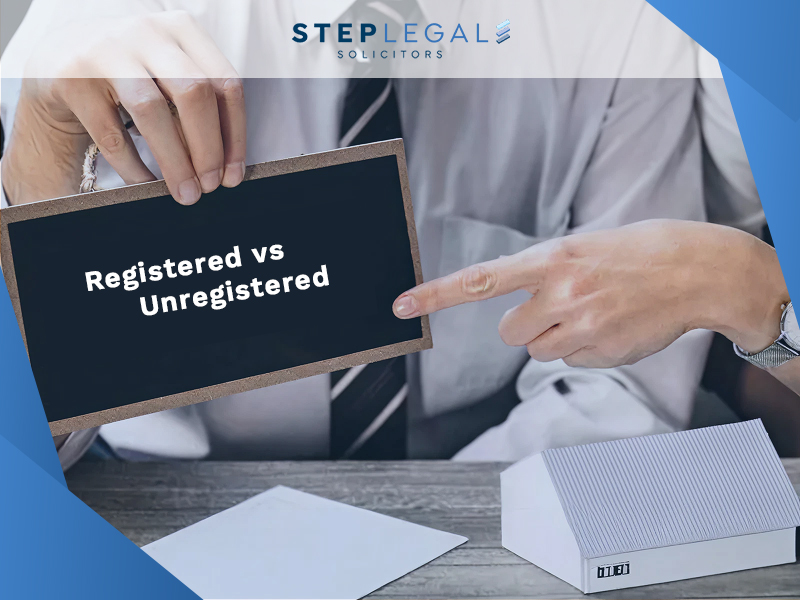
What Is a Solicitor? Roles, Responsibilities, Specialisations, Costs, and How to Choose the Right One in the UK
A solicitor is a fully qualified legal professional who advises, represents, and manages a wide range of legal matters for individuals, families, and businesses. They provide guidance on both everyday and complex issues, including property transactions, drafting wills and managing estates, employment disputes, commercial contracts, and court representation. Solicitors also assist with immigration matters, personal injury claims, business compliance, and dispute resolution, making them a central figure in the legal system.
Unlike barristers, solicitors focus on direct client interaction, case management, and practical legal solutions, ensuring that legal processes run smoothly from start to finish. They often collaborate with barristers, paralegals, expert witnesses, and other professionals to provide comprehensive support for complex cases.
Becoming a solicitor requires extensive legal education, practical training, and professional qualification, including passing the Solicitors Qualifying Examination (SQE) and completing qualifying work experience. This rigorous preparation equips solicitors to handle both routine legal matters and high-stakes cases effectively, while upholding client rights, ensuring compliance with law, and offering expert legal advice.
With evolving technology, changing regulations, and rising client expectations, modern solicitors are increasingly specialised, tech-enabled, and client-focused, delivering efficient, reliable, and accessible legal services across the UK.
What is a Solicitor?
A solicitor is a type of legal professional who is trained and qualified to give expert advice on the law, prepare legal documents, and represent clients in certain courts. In the United Kingdom and other common law jurisdictions, the title solicitor has a very specific meaning: it refers to a lawyer who works directly with individuals, families, or businesses, offering day-to-day legal guidance.
Unlike the broader term lawyer, which can refer to anyone who practises law, a solicitor is a regulated professional who must be admitted to the roll of solicitors and is overseen by the Solicitors Regulation Authority (SRA) in England and Wales. This ensures that solicitors meet strict professional and ethical standards.
Solicitors are often the first point of contact when someone needs legal help. They listen to a client’s situation, explain the legal implications, and recommend the best course of action. For instance, a solicitor might handle the process of buying or selling a house (conveyancing), draft contracts, create wills, resolve disputes, or advise on employment and family law. If a case needs to go to a higher court, solicitors may work with or instruct a barrister who specialises in courtroom advocacy.
In simple terms, a solicitor is:
- A legal advisor who makes complex laws understandable.
- A problem-solver who helps prevent disputes before they escalate.
- A professional representative who protects a client’s rights and interests in legal matters.
Globally, the term may vary. For example, in the United States, the term “attorney” or “lawyer” is more common, while in the UK, Ireland, Australia, and New Zealand, the distinction between solicitor and barrister is still very important.
What Does a Solicitor Do in Everyday Life?
While many people imagine lawyers only in courtrooms, a solicitor’s daily work is far more practical and wide-ranging. Most individuals and businesses will encounter a solicitor during key moments in life, buying a home, resolving a dispute, or safeguarding family interests. In essence, solicitors are the go-to legal advisors for everyday matters.
1. Property and Conveyancing
One of the most common reasons people hire solicitors is for property transactions. A solicitor will:
- Handle the legal transfer of ownership when buying or selling a house.
- Review contracts and ensure the terms are fair.
- Conduct local authority and environmental searches to uncover hidden risks.
- Draft tenancy agreements for landlords and tenants.
2. Wills, Trusts, and Estate Planning
Planning for the future is another area where solicitors play a vital role. They:
- Write legally valid wills to ensure assets are distributed correctly.
- Set up trusts to protect family wealth.
- Advise on inheritance tax and estate administration.
- Prepare lasting powers of attorney so decisions can be made if someone loses capacity.
3. Employment and Workplace Issues
Solicitors act for both employees and employers. Their work covers:
- Employment contracts, workplace rights, and compliance.
- Resolving disputes such as unfair dismissal or redundancy.
- Advising on workplace discrimination or harassment claims.
4. Business and Commercial Law
For business owners and organisations, solicitors provide ongoing legal support, including:
- Drafting and reviewing contracts, shareholder agreements, and partnership terms.
- Advising on mergers, acquisitions, and corporate restructuring.
- Protecting intellectual property and ensuring regulatory compliance.
5. Disputes and Representation in civil litigation, including Personal Injury and Medical Negligence claims
Solicitors are a first port of call for innocent injured victims of accidents and medical errors causing harm. They deal with straight forward cases to cases valued Millions of pounds.
Barristers usually assist in very high value multi-million pound settlements, solicitors represent clients in many aspects in such claims including:
- Arranging for rehabilitation and treatment
- Instructing Medical experts
- Instructing non-medical experts such as specialist Accountants for evidence of losses
- Preparing Schedules
a solicitor’s everyday role is not just about legal theory, it is about practical problem-solving. From the home you live in, to the work you do, to the legacy you leave behind, solicitors provide the legal framework that keeps life and business running smoothly.
How Is a Solicitor Different from a Lawyer or Barrister?
For many people, the terms solicitor, lawyer, and barrister are confusing and often used interchangeably. While all three are connected to the practice of law, they are not identical. Each has a distinct meaning depending on the legal system in question. Knowing the difference is essential when deciding who to approach for legal advice or representation.
Solicitor vs Lawyer
The word lawyer is the most general term. It simply describes anyone qualified to give legal advice and practice law. This could include solicitors, barristers, attorneys, or advocates.
By contrast, a solicitor is a specific type of lawyer. In countries such as England, Wales, Ireland, Australia, and New Zealand, solicitors are usually the first point of contact for clients. They advise on everyday legal matters, prepare documents, negotiate settlements, and represent clients in lower courts or tribunals.
In other regions, such as the United States and Canada, the term solicitor is not commonly used. Instead, the more familiar term is attorney or simply lawyer.
Key point: All solicitors are lawyers, but not all lawyers are solicitors.
Solicitor vs Barrister
The distinction between solicitors and barristers is particularly important in the UK legal system.
- Solicitors: Work closely with clients, manage cases, and handle the paperwork. They may represent clients in lower courts but often instruct barristers for complex trials.
- Barristers: Focus on courtroom advocacy and specialist legal arguments. They usually become involved when a case is due to be heard in higher courts such as the High Court or Court of Appeal.
This division of work allows solicitors to act as legal advisors and case managers, while barristers act as specialist advocates.
Training and Regulation
- Solicitors qualify through the Solicitors Qualifying Examination (SQE) in England and Wales and are regulated by the Solicitors Regulation Authority (SRA).
- Barristers train through the Bar Training Course and a year-long pupillage, under the oversight of the Bar Standards Board (BSB).
- Lawyers as a general category are licensed differently depending on the jurisdiction. For example, in the United States, attorneys are admitted to the bar by state authorities.
Which Professional Do You Need?
- Choose a solicitor if you require ongoing legal advice, contract drafting, property transactions, wills, or family law assistance.
- Solicitors normally instruct Barrister’s if your case requires complex courtroom advocacy or if your solicitor recommends specialist representation. Although, it is possible to instruct Barristers directly.
- Outside of the UK, look for a lawyer or attorney, since the solicitor–barrister split does not exist in many other countries.
How Do You Become a Solicitor in the UK?
Becoming a solicitor in the UK is a respected career path that requires a mix of academic study, professional training, and regulated qualification. The process has evolved in recent years with the introduction of the Solicitors Qualifying Examination (SQE), which has replaced older routes such as the Legal Practice Course (LPC).
Here’s a step-by-step look at how someone can qualify as a solicitor in England and Wales:
1. Academic Stage: Studying Law or an Equivalent Degree
- Law degree (LLB): Most aspiring solicitors begin with an undergraduate law degree, which provides the foundation in key subjects such as contract law, criminal law, property law, and constitutional law.
- Non-law degree route: Those who study another subject can still qualify by taking a conversion course such as the Graduate Diploma in Law (GDL), although the SQE has made this step more flexible.
2. Passing the Solicitors Qualifying Examination (SQE)
The SQE is now the central assessment for qualification. It has two stages:
- SQE1: Tests functioning legal knowledge through multiple-choice assessments.
- SQE2: Tests practical legal skills, such as client interviewing, advocacy, case analysis, and legal research.
Both stages must be passed to move forward in the qualification process.
3. Qualifying Work Experience (QWE)
Aspiring solicitors must complete two years of qualifying work experience. Unlike the older system of training contracts, this requirement is more flexible and can be gained through:
- Working in a law firm.
- Placement in a legal clinic or law centre.
- Volunteering in pro bono work.
- In-house legal teams within companies or organisations.
QWE can be gained in up to four different organisations, giving candidates more opportunities to build varied experience.
4. Character and Suitability Assessment
Before being admitted to the roll of solicitors, candidates must undergo a character and suitability assessment by the Solicitors Regulation Authority (SRA). This ensures new solicitors are fit to practise law ethically and responsibly.
5. Admission as a Solicitor
Once all the above steps are completed, candidates are formally admitted to the roll of solicitors and can practise law in England and Wales. They must also comply with ongoing requirements such as Continuing Professional Development (CPD) and adherence to the SRA Code of Conduct.
Alternative Routes and Flexibility
- Apprenticeships: The Solicitor Apprenticeship route allows school leavers to qualify without going to university, combining study with paid work experience over six years.
- Equivalent Qualifications: Qualified lawyers from other jurisdictions may be able to requalify in the UK through the SQE route.
To become a solicitor in the UK, you must complete academic study, pass the SQE exams, gain two years of qualifying work experience, and meet the SRA’s character and suitability requirements. The process is rigorous but offers multiple entry points, making the profession more accessible than ever before.
What Types of Solicitors Are There?
Solicitors do not all practise in the same way. While every solicitor is trained in the foundations of law, most specialise in a particular area of practice to meet the diverse legal needs of individuals, families, and businesses. Choosing the right solicitor often depends on the type of legal issue you are facing.
Here are the main types of solicitors you are likely to encounter in the UK:
1. Family Law Solicitors
- Deal with matters such as divorce, separation, child custody, adoption, and domestic abuse.
- Provide guidance on prenuptial and postnuptial agreements.
- Aim to resolve family disputes through negotiation or mediation, but can represent clients in court when necessary.
2. Property and Conveyancing Solicitors
- Specialise in buying, selling, and leasing property.
- Handle contracts, land registration, and property searches.
- Work with both individuals (homeowners, tenants, landlords) and businesses (developers, investors).
3. Wills, Trusts, and Probate Solicitors
- Help clients plan their estates through wills and trusts.
- Manage inheritance tax issues and succession planning.
- Guide families through the probate process after someone has passed away.
4. Criminal Law Solicitors
- Defend clients accused of crimes ranging from minor offences to serious charges.
- Provide representation in police stations, magistrates’ courts, and Crown Courts.
- Often work alongside barristers in serious trials.
5. Employment Law Solicitors
- Advise both employees and employers.
- Handle disputes such as unfair dismissal, redundancy, workplace discrimination, and contract breaches.
- Draft and review employment contracts to ensure compliance with law.
6. Corporate and Commercial Solicitors
- Work with businesses of all sizes, from startups to multinationals.
- Draft contracts, advise on mergers and acquisitions, and ensure regulatory compliance.
- Assist with intellectual property, partnerships, and shareholder agreements.
7. Personal Injury Solicitors
- Represent individuals who have suffered accidents or injuries due to negligence.
- Help clients claim compensation for workplace accidents, road traffic collisions, or medical negligence.
8. Immigration Solicitors
- Assist with visas, residency applications, asylum claims, and citizenship processes.
- Advise both individuals and businesses on immigration compliance and appeals.
9. Other Specialist Areas
Solicitors may also focus on niche areas such as:
- Environmental law (pollution, land use, climate compliance).
- Sports and media law (contracts, image rights, disputes).
- Banking and finance law (investment, lending, regulation).
Solicitors in the UK specialise across a wide range of practice areas. Whether you are moving house, going through a divorce, facing criminal charges, or running a business, there will be a solicitor with the right expertise to guide you through the legal process.
Can a Solicitor Represent You in Court?
Yes in many situations a solicitor can represent you in court, but the level of representation depends on the type of court and the solicitor’s qualifications. In the UK, the legal system makes a distinction between the rights of audience granted to solicitors and those reserved for barristers.
Representation in Lower Courts
- Solicitors routinely represent clients in lower courts such as the Magistrates’ Court, County Court, and tribunals.
- Typical cases include family disputes, housing issues, employment tribunals, and minor criminal offences.
- Many solicitors are highly experienced advocates at this level and can handle cases from start to finish without needing a barrister.
Higher Rights of Audience
- Traditionally, barristers have been the main advocates in higher courts such as the Crown Court, High Court, Court of Appeal, and Supreme Court.
- However, some solicitors can apply for and obtain Higher Rights of Audience, allowing them to act as advocates in these senior courts. These solicitors are sometimes referred to as solicitor-advocates.
- This means clients may not always need both a solicitor and a barrister if their solicitor is qualified to handle higher-level advocacy.
When a Barrister Is Usually Involved
- For complex trials, appeals, or cases involving highly specialised legal arguments, solicitors often instruct a barrister to represent the client in court.
- The solicitor continues to prepare the case, manage evidence, and liaise with the client, while the barrister focuses on courtroom advocacy.
Direct Access and Flexibility
- In some circumstances, clients can instruct a barrister directly under the Public Access Scheme, but in most cases, the solicitor remains the central point of contact, coordinating the entire legal process.
A solicitor can represent you in many courts, particularly at the local and tribunal level.
For more complex or high-level cases, a barrister may be required, unless your solicitor holds Higher Rights of Audience.
In practice, most clients will work closely with a solicitor throughout, who ensures they have the right legal team for their specific case.
How Much Does a Solicitor Cost?
The cost of hiring a solicitor in the UK can vary widely depending on the type of legal service, the complexity of the case, and the solicitor’s level of experience. Unlike some professions with standardised pricing, solicitors use different fee structures to suit the needs of their clients. Understanding these options helps you budget realistically for legal support.
1. Common Pricing Structures
- Hourly Rates: Many solicitors charge by the hour, with rates typically ranging from £120 to £500+ per hour, depending on seniority and location.
- Fixed Fees: For routine services such as conveyancing, drafting a will, or setting up a power of attorney, solicitors often offer a fixed price so clients know the cost upfront.
- Percentage-Based Fees: In probate or estate administration, solicitors sometimes charge a percentage of the estate’s value.
- Conditional Fee Agreements (No Win, No Fee): In personal injury cases, solicitors may only charge if the claim is successful, taking an agreed percentage of the compensation.
2. Factors That Influence Cost
Several elements affect how much you pay for a solicitor:
- Type of legal issue – Criminal defence and corporate law tend to be more expensive than routine conveyancing.
- Experience and seniority – Senior partners command higher rates than junior solicitors or paralegals.
- Location – London firms usually charge more than regional practices.
- Complexity of the case – A straightforward contract review costs far less than a complex litigation dispute.
3. Legal Aid and Funding Options
Not all clients have to pay privately. In certain cases, Legal Aid may be available to cover some or all solicitor costs, particularly in areas such as:
- Criminal defence.
- Family law cases involving domestic abuse or child protection.
- Asylum and immigration cases.
Clients should check their eligibility through the UK Government Legal Aid Calculator or by consulting a solicitor who accepts Legal Aid cases.
4. Free or Low-Cost Alternatives
- Pro bono services: Some solicitors provide free advice through charities or legal clinics.
- Citizens Advice: Offers initial guidance and can refer clients to solicitors where needed.
- Legal expenses insurance: Sometimes included with home or car insurance policies.
The cost of a solicitor depends on the service, complexity, and pricing structure. While rates can range from a few hundred to several thousand pounds, options such as fixed fees, Legal Aid, and pro bono services mean that legal help is not always out of reach. It is always best to request a clear fee estimate before instructing a solicitor.
When Do You Need a Solicitor?
Not every situation in life requires legal assistance, but there are many moments when consulting a solicitor can save time, protect your rights, and prevent costly mistakes. A solicitor is often the first professional you turn to when legal expertise is essential.
1. Buying or Selling Property
Property transactions, known as conveyancing, are one of the most common reasons people hire solicitors. They handle:
- Drafting and reviewing contracts.
- Conducting local authority and land registry searches.
- Managing funds and completing the transfer of ownership.
Without a solicitor, a property deal may fall through or result in hidden liabilities.
2. Family and Relationship Matters
Solicitors play a vital role in sensitive family issues, including:
- Divorce and separation.
- Child custody and adoption.
- Prenuptial or postnuptial agreements.
- Domestic abuse protection orders.
They not only provide legal advice but also help reduce conflict through mediation and negotiation.
3. Planning for the Future
Solicitors ensure your wishes are respected and assets protected by:
- Drafting wills.
- Creating trusts to manage wealth.
- Advising on inheritance tax.
- Preparing lasting powers of attorney.
These services protect families from disputes and give peace of mind.
4. Employment and Workplace Issues
You may need a solicitor if you are:
- Facing unfair dismissal or redundancy.
- Experiencing discrimination or harassment at work.
- Running a business and needing compliant employment contracts.
5. Business and Commercial Transactions
Solicitors are essential for businesses of all sizes. They help with:
- Drafting contracts, shareholder agreements, and terms of service.
- Advising on mergers, acquisitions, and partnerships.
- Protecting intellectual property and ensuring regulatory compliance.
6. Criminal Charges or Police Matters
If you are arrested, charged, or under police investigation, a solicitor can:
- Represent you at the police station.
- Defend you in the Magistrates’ Court or Crown Court.
- Ensure your rights are protected throughout proceedings.
7. Immigration and Residency Issues
Solicitors assist with:
- Visa and residency applications.
- Asylum claims and appeals.
- Employer compliance with immigration law.
8. Resolving Disputes
Solicitors can resolve conflicts without always going to court by:
- Offering mediation or negotiation.
- Settling small claims or contractual disputes.
- Representing clients in tribunals or county courts if needed.
You need a solicitor whenever legal advice, documentation, or representation is required. Whether it’s buying a house, protecting your family, running a business, or defending your rights in court, solicitors provide the expertise to guide you through complex situations and achieve the best outcome.
How Do Solicitors Work With Other Legal Professionals?
Solicitors rarely work in isolation. The legal system is highly collaborative, and solicitors often coordinate with other professionals to deliver the best outcome for their clients. From preparing cases for court to managing complex transactions, their role is often about bringing together the right expertise at the right time.
1. Working With Barristers
- When it happens: Solicitors typically instruct barristers when a case requires specialist courtroom advocacy or complex legal arguments.
- How it works:
- The solicitor gathers evidence, drafts documents, and manages client communication.
- The barrister uses this material to present the case in higher courts.
- The solicitor gathers evidence, drafts documents, and manages client communication.
- Example: In a serious criminal trial, the solicitor prepares the case while the barrister delivers advocacy before the judge and jury.
2. Working With Judges and the Courts
- Solicitors liaise with court staff, submit paperwork, and ensure deadlines are met.
- They may appear in lower courts themselves or coordinate with barristers for higher court representation.
- Their role ensures cases are procedurally sound before reaching a judge.
3. Working With Paralegals and Legal Executives
- Paralegals: Support solicitors by conducting research, drafting documents, and handling administrative tasks.
- Chartered Legal Executives: Qualified professionals who can specialise in certain areas of law. Solicitors often work alongside them in larger firms or in-house legal teams.
4. Working With Expert Witnesses
- In disputes or litigation, solicitors may engage medical experts, financial analysts, or forensic specialists to provide evidence.
- The solicitor coordinates their testimony and ensures it aligns with legal strategy.
5. Working With Other Professionals
- Solicitors often collaborate with accountants, surveyors, financial advisors, and estate planners.
- Example: In property transactions, solicitors work with surveyors and mortgage lenders to ensure everything is legally and financially sound.
Solicitors act as case managers and legal advisors, working closely with barristers, judges, paralegals, and other professionals. Their role is to coordinate, guide, and protect the client’s interests, ensuring every aspect of the legal process is handled with precision and expertise.
How Do You Choose the Right Solicitor?
Choosing the right solicitor is one of the most important steps in resolving a legal issue. The right professional not only provides expert legal advice but also gives you confidence and peace of mind during what is often a stressful time. Since solicitors vary in their areas of expertise, experience, and pricing, it’s important to evaluate your options carefully.
1. Identify Your Legal Needs
Solicitors specialise in different areas, so start by clarifying your situation:
- Buying or selling a property? → Look for a conveyancing solicitor.
- Personal Injury? → Look For a personal injury solicitor.
- Medical Negligence? → Look For a Medical Negligence solicitor.
- Wills and Probate? → Choose a Wills and Probate solicitor.
- Facing criminal charges? → You’ll need a criminal defence solicitor.
- Running a business? → Seek a commercial or corporate solicitor.
Matching your legal problem to a solicitor’s area of expertise ensures you receive the most relevant guidance.
2. Check Qualifications and Accreditations
In the UK, all solicitors must be regulated by the Solicitors Regulation Authority (SRA) and appear on the official roll of solicitors. Many also hold additional accreditations, such as:
- Law Society quality marks (e.g., Family Law Advanced, Conveyancing Quality Scheme).
- Panel memberships for legal aid or specialist practice areas.
These accreditations provide reassurance of recognised competence.
3. Evaluate Experience and Track Record
- Ask how many cases similar to yours they have handled.
- Look for solicitors with a proven track record in negotiation, litigation, or settlements.
- For high-stakes matters (e.g., business acquisitions or serious criminal defence), experience often matters more than cost.
4. Consider Costs and Transparency
- Request a clear fee structure before hiring (hourly, fixed, or conditional).
- Compare quotes but avoid choosing solely on price.
- A good solicitor will provide an upfront estimate and keep you informed of additional costs.
5. Accessibility and Communication Style
- Does the solicitor explain complex legal terms in plain English?
- Are they responsive to emails and calls?
- Do you feel comfortable discussing personal or sensitive issues with them?
A solicitor–client relationship is built on trust and communication, so these soft factors are crucial.
6. Read Reviews and Ask for Recommendations
- Check independent reviews, client testimonials, or case studies on their website especially Trustpilot and other Review sites
- Personal recommendations from friends, family, or colleagues can also be invaluable.
7. Location and Convenience
While many services are now offered remotely, for some matters — especially property transactions or sensitive family cases — having a solicitor nearby can be reassuring.
The right solicitor combines specialist expertise, professional accreditation, transparent fees, and strong communication skills. By carefully considering your legal needs and evaluating a solicitor’s track record, you can choose a professional who not only resolves your issue but also supports you throughout the process.
What Is the Future of Solicitors in the UK?
The role of solicitors in the UK is changing rapidly. While the core duties of advising clients, drafting legal documents, and ensuring compliance will remain, the way solicitors deliver services is evolving due to technology, regulatory reform, and shifting client expectations. Understanding these trends provides insight into the future of the legal profession.
1. Increased Use of Legal Technology
- AI and Automation: Tools like document automation, e-discovery platforms, and AI-driven research assistants are reducing the time solicitors spend on routine tasks.
- Virtual Consultations: More firms now offer video appointments and digital case management portals.
- Smart Contracts and Blockchain: In property, finance, and commercial law, solicitors may increasingly use blockchain-based agreements to streamline transactions.
Rather than replacing solicitors, technology is augmenting their role, freeing time for strategy, negotiation, and client care.
2. Regulatory Reforms and Access to Justice
- The Solicitors Regulation Authority (SRA) is making it easier for clients to compare firms by requiring price transparency and publishing performance data.
- Alternative business structures (ABS) allow solicitors to partner with non-lawyers, creating new types of legal service providers.
- Online legal services and fixed-fee models are expanding access for clients who previously couldn’t afford traditional firms.
3. Changing Client Expectations
- Clients now demand value, speed, and clarity. They want plain English advice, predictable pricing, and flexible service delivery.
- Younger clients, especially first-time home buyers or entrepreneurs, prefer firms that are digitally savvy and accessible online.
4. Greater Specialisation
As laws become more complex, solicitors are likely to specialise further in niche areas such as:
- Cybersecurity and data protection law.
- Environmental and sustainability law.
- International trade and immigration.
5. Competition From Alternative Legal Providers
- Non-traditional providers, such as online platforms and AI-based tools, are challenging law firms in areas like wills, contracts, and conveyancing.
- However, when issues are complex, high-stakes, or emotionally sensitive, solicitors remain irreplaceable due to their judgment, empathy, and advocacy.
6. A Strong but Evolving Profession
While the solicitor profession is under pressure to modernise, it remains one of the most respected careers in the UK. Demand for legal advice will continue in areas such as family law, property, employment disputes, and corporate compliance. The future solicitor is likely to be:
- Tech-enabled (using AI but not replaced by it).
- Client-centred (focusing on communication and trust).
- Specialist and adaptable (navigating emerging areas of law).
The future of solicitors in the UK is one of adaptation, innovation, and resilience. Technology and alternative providers will reshape how services are delivered, but the solicitor’s role as a trusted legal advisor — combining expertise, judgment, and advocacy — will remain central to the legal system.
Can I Get Free Legal Advice from a Solicitor?
Yes — it is possible to obtain free legal advice from a solicitor, but the type and availability of free services vary depending on your circumstances, the area of law, and the solicitor or organisation providing the service.
1. Pro Bono Services
- Many solicitors offer pro bono (free) work to support individuals who cannot afford legal fees.
- Pro bono work is often provided through:
- Law firms’ dedicated pro bono departments.
- Charities and non-profit legal organisations.
- University legal clinics where law students, supervised by solicitors, offer advice.
- Law firms’ dedicated pro bono departments.
- Common areas include family law, immigration, housing disputes, and employment issues.
2. Legal Aid
- The UK government provides Legal Aid for certain types of cases, especially where access to justice is essential.
- Eligibility depends on income, savings, and the type of legal matter.
- Areas often covered include:
- Criminal defence for those accused of serious offences.
- Family law cases involving domestic abuse or child protection.
- Asylum and immigration appeals.
- Criminal defence for those accused of serious offences.
- Legal Aid can cover all or part of the solicitor’s fees.
3. Initial Free Consultations
- Many solicitors offer a free first meeting or consultation.
- During this session, the solicitor can:
- Explain your legal options.
- Outline potential costs.
- Advise whether your case qualifies for Legal Aid or pro bono assistance.
- Explain your legal options.
4. Online and Community Resources
- Citizens Advice and other charities provide free initial guidance and can refer clients to solicitors.
- Some law firms provide online advice portals or live chat services for simple legal queries.
5. Limitations of Free Advice
- Free services may be limited in scope or time.
- Complex cases or extended representation typically require paid services.
- Always check whether ongoing legal work will incur fees before proceeding.
Free legal advice is available from solicitors through pro bono services, Legal Aid, and initial consultations. While these resources can provide guidance and support, full representation or complex cases often require paid services. Always confirm the terms upfront to avoid unexpected costs.
Get Expert Legal Support with Step Legal
Legal matters can be complex and stressful, whether you’re buying a property, planning your estate, resolving a dispute, or managing a business issue. That’s where Step Legal Solicitors comes in — providing trusted guidance and professional support across the UK.
With Step Legal, you benefit from:
- Experienced Solicitors specialising in family law, property law, corporate law, and personal legal matters.
- Transparent and Flexible Fees, including fixed-price options and clear upfront estimates.
- Client-Focused Service, explaining legal processes in plain English and keeping you informed every step of the way.
- Accessible Support Across the UK, with both in-person and virtual consultations available.
Whether it’s advice, documentation, or full representation, Step Legal ensures you have the right solicitor for your needs.
Don’t navigate legal challenges alone. Contact Step Legal today to speak with a qualified solicitor and secure the legal support you deserve.
Conclusion
Solicitors play a vital role in the UK legal system, providing expert advice, practical solutions, and representation for individuals, families, and businesses. They are essential in areas such as property transactions, family law, Personal injury/Clinical Negligence claims, employment disputes, wills and estates, corporate matters, criminal defence, and immigration.
Unlike barristers or general lawyers, solicitors focus on direct client interaction, case management, and practical guidance, often collaborating with other legal professionals to ensure the best outcomes. Their specialised training, professional qualifications, and hands-on experience enable them to navigate complex legal processes, protect client rights, and deliver effective solutions.
The solicitor profession continues to evolve, with technology, regulatory reforms, and changing client expectations reshaping how legal services are delivered. Modern solicitors are increasingly specialised, tech-enabled, and client-focused, making expert legal support more accessible than ever.
Whether you need advice, representation, or assistance with planning for the future, engaging a qualified solicitor ensures your legal matters are handled efficiently, accurately, and with confidence.
For reliable and professional legal support across the UK, Step Legal provides experienced solicitors ready to guide you through every stage of your legal journey — from everyday matters to complex cases.
















